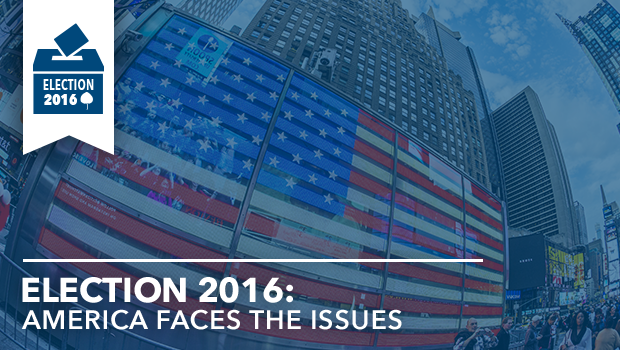In The Social Contract, Jean-Jacques Rousseau distinguishes between people as an aggregation, distinctly different from an association. In an aggregation, each pursues his or her individual interest. In an association, however, individuals are united in support of a common purpose. Even if Rousseau’s political solutions are problematic—arguably, his ideas on association helped give rise to the French Revolution—his fundamental political analysis is fruitful for analyzing how we stand as a people today. Are we simply the aggregation of individual interests? Or do we value a common good, however minimalistic, that makes us an association? In short, what binds us together as a people?
Our politics are increasingly fractured. And by “our” politics I speak not only of the United States, but of Western democracies generally. At least since the end of the Cold War, Western democracies have become, by and large, aggregations of individual interests pitted against one another, rather than associations bound together by common values. Individuals are increasingly isolated— we are “thrown back,” in Tocqueville’s words, “upon the solitude of our own hearts.”
The exhaustion of the culture wars of the mid-1980s, and the so-called “peace dividend” post-1989, persuaded us that values are no longer valuable. All that was required was agreement to achieve greater economic growth. “It’s the economy stupid” became the nonpartisan mantra of post-Cold War politics. Correspondingly, our politics has become increasingly technical. In a number of European democracies, government has become literally technical, with major parties failing to form governments, and political positions filled by technocrats. Evacuated of values, political discourse has been reduced to desiccated arguments among experts about how best to improve economic efficiency. But to what end? The supplanting of democratic deliberation by technical experts has led the philosopher Jürgen Habermas to declare “the end of politics”—absent discussion of ends, politics has become simply a carnival of materialistic means.
Democratic institutions are, of course, constructed to facilitate the peaceful coordination of competing interests. But a healthy democracy recognizes that the aggregation of material interests must ultimately calibrate those interests with respect to a higher value—a vision of a way of living and living together which is not simply mine, but ours, a way of living together which calls us to act as a better version of ourselves. That is, it aims at a common good, a good for all of us, a good which is not only material but also moral.
The good for all of us may be what some consider a bare minimum—a state which aims simply at peace under the rule of law. Others may have a more substantive notion of the good, expressed, for example, in the politics of European social democracy. This spectrum of political liberalism (in the classical sense) which once defined the values of our transatlantic political culture has, over the last two decades, given way to economics alone. When the money runs out—or is disproportionately concentrated—what is it that binds us together?
Tocqueville recognized, with Aristotle, that life in a political community was fundamentally a moral engagement—a place where we come to temper our interests in the light of something greater than ourselves. That is, they recognized that a healthy political life requires a contest and adjustment of values, values which in turn were informed by a collective vision of a life well-lived.
If our contemporary political rhetoric is so desiccated, it is because we have replaced the vocabulary of values with the language of price. And even further, when debate is informed by fear rather than facts, it is no surprise that—absent both facts and values—“debate” is reduced to the basest of personal accusations.
There is an increasing hunger for the protein of values amidst the high-sugar diet of our contemporary discourse. The difficulty is that our moral muscle has atrophied—it takes work, and time, to rebuild. In a culture where values are sometimes thought but rarely spoken, we find ourselves unsure of what we believe or why we believe it. Or we find a vocal minority for whom volume triumphs over moral reasoning. Discerning values takes time; putting values to the test takes humility; holding fast to values against the grain requires courage. It’s time we took time for values and break the unhealthy habits that have diseased our democracy. A muscle does not become stronger unless it is used: It’s time that we exercise that muscle and ask our leaders to do the same.
In speaking of politics, both Tocqueville and Aristotle use the language of the heart or soul. The only antidote to a heartless, soulless politics is to reintroduce the language of our highest values, to begin to recast ourselves not simply as an aggregation but also as an association. We need to be clear, individually and as a people, about the common objects of our love. To view political association not merely in terms of interest but also in terms of value is to engage in a moral adventure which enlarges our hearts and elevates our souls. The politics of values appeals to the better angels of our nature. It raises us to the higher selves we are called to be.


